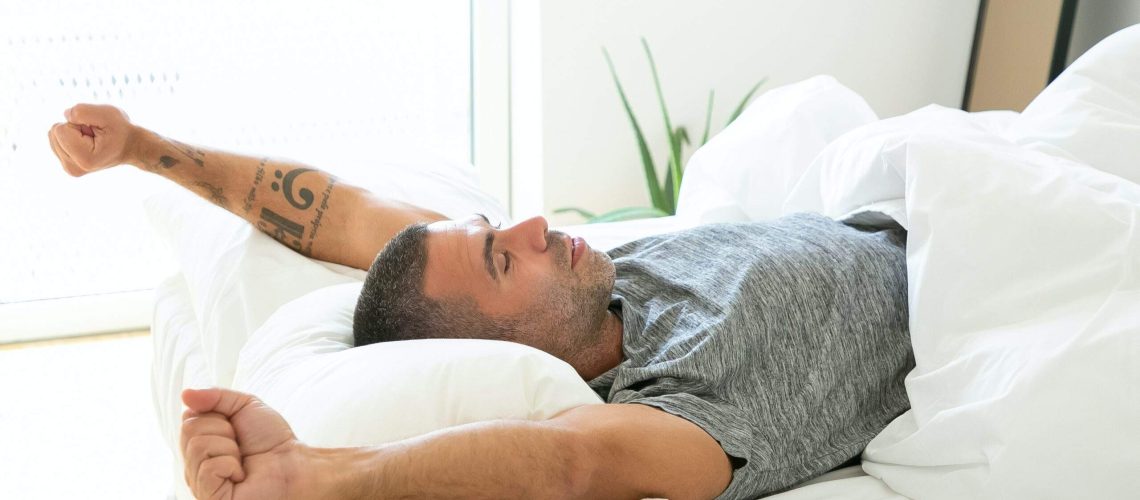Whether you haven’t been sleeping well or simply want to boost your overall health, focusing on your sleep is one of the best things you can do for yourself. Here are some super easy ways to optimize your sleep.
Create a Regular, Consistent Sleep Schedule
Try to work on having a regular sleep schedule, at least most nights of the week. This means going to bed around the same time every night, and waking up around the same time each morning. This not only helps with your circadian rhythm, but it lets you know what time of night you need to start getting ready for sleep
Improve Your Sleeping Environment
Your bedroom should be set up to improve your sleep, not negatively affect it. This means the temperature of your bedroom and how dark it is, as well as how comfortable your bed is, and not seeing a lot of clutter around.
Limit Daytime Naps
Naps during the day might feel like they are helping you, but these are only making it harder to sleep at night. If you need to nap, make them micro naps during the day of no more than 10-15 minutes.
Don’t Eat or Drink Before Bed
You also want to be careful what you eat and drink before you go to sleep. Not just caffeine and alcohol, though those definitely keep you from getting good sleep. You should also be aware of any eating that could be causing stomach upset and keeping you from sleep. Foods that increase your blood sugar are likely to disrupt your peaceful slumber. Stopping eating about 3-4 hours before bed or eating only protein in the evening can help curb this glucose increase.
Get Moving
If you can get more physical activity during the day, such as walking or doing a quick workout, it will actually help you get better sleep at night. Even 20-30 minutes a day makes a big difference
Manage Worries
Stress and overthinking can lead to sleep problems. Techniques such as meditation, deep breathing, and progressive muscle relaxation can promote relaxation and improved sleep
Limit Electronic Use Before Bed
There are a few reasons using your devices before bed could be affecting your sleep. For one thing, the blue light shining brightly in your eyes could be making it a lot harder for you to fall asleep. Secondly, they can peak your anxiety and keep you more alert depending on what you’re looking at.
Know When to See a Professional
If you’ve tried a variety of sleep hygiene practices and are still struggling with sleep, it might be time to consult a healthcare provider. Sleep disorders, such as sleep apnea and insomnia, are treatable, and addressing these issues could drastically improve your sleep. Seeking out acupuncture or massage therapy are highly recommended for sleep concerns. Also, consulting with a professional about supplements, like magnesium, may be beneficial.

